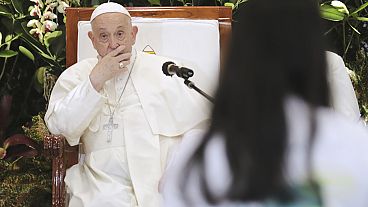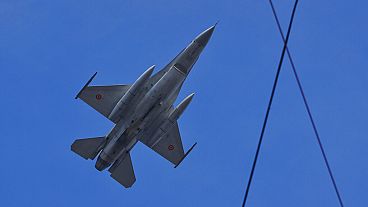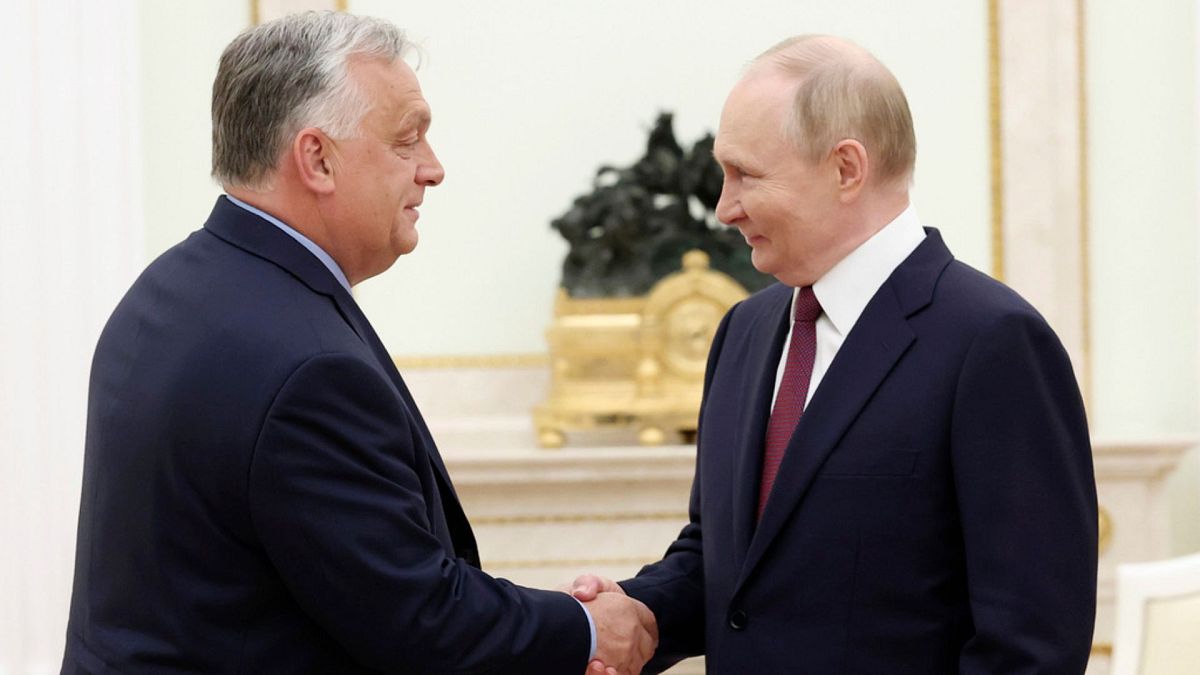While most European countries firmly back Ukraine, Hungary's Prime Minister Viktor Orbán is seen as having comparatively close ties to Russia, prompting a war of words with Poland.
A diplomatic spat has erupted between Poland and Hungary that lays bare the deep tensions within Europe over how to deal with Russia as it continues its full-scale invasion of Ukraine.
Poland, like Germany, France and most other European nations, is a staunch ally of Ukraine, while Hungary’s populist Prime Minister Viktor Orbán is widely considered to have the warmest relations with the Kremlin among EU leaders.
The Polish government has been openly critical of Hungary's stance, and their spat reached a new boiling point when Orbán lashed out at Poland at the weekend.
“The Poles are pursuing the most sanctimonious and the most hypocritical policy in the whole of Europe," the prime minister said. "They are lecturing us morally, criticising us for our economic relations with Russia, and at the same time they are doing business with the Russians and buying oil indirectly, and running the Polish economy with it."
Poland was quick to launch its own barbs in response: "We do not do business with Russia, unlike Prime Minister Orbán, who is on the margins of international society — both in the European Union and NATO," Poland's Deputy Foreign Minister Władysław Teofil Bartoszewski said on Sunday.
Bartoszewski added that Orbán should leave Western international organisations and instead "join a union with [Russian President] Putin" and other authoritarian states.
His comments were reported by the Polish state news agency PAP and came after Orbán travelled to Moscow to meet Putin earlier in July, in a move that sparked anger in Brussels and was seen by some as proof of his pro-Russian leanings.
Estranged allies
Hungary has found itself isolated in the EU due to its rogue approach to Russia and friendliness towards China as well. Top EU officials have been boycotting informal meetings hosted by Hungary, which now holds the EU's rotating presidency.
"If you don’t want to be a member of a club, you can always leave,” Bartoszewski said. "I don't really understand why Hungary wants to remain a member of organisations that it doesn't like so much and which supposedly treat it so badly."
The digs didn't end there.
Hungary’s Foreign Minister Péter Szijjártó responded to Bartoszewski on Facebook: "For a long time, we tolerated the provocations and hypocrisy of the current Polish government with the intention of preserving the Polish-Hungarian brotherhood, but we have had enough."
Poland and Hungary have historically strong ties. Orbán got along very well with the conservative populists who governed Poland from 2015 to 2023 due to their shared views on migration and the EU.
They both opposed allowing migrants from the Middle East and Africa to enter Europe, and both governments accused the EU of seeking to take away powers from nation-states.
Those ties only began to sour when Russia launched its full-scale invasion of Ukraine in 2022, an aggression that Poles also feel is an existential threat in the region.
They have worsened since a pro-EU government took over in Warsaw under Prime Minister Donald Tusk in December.












